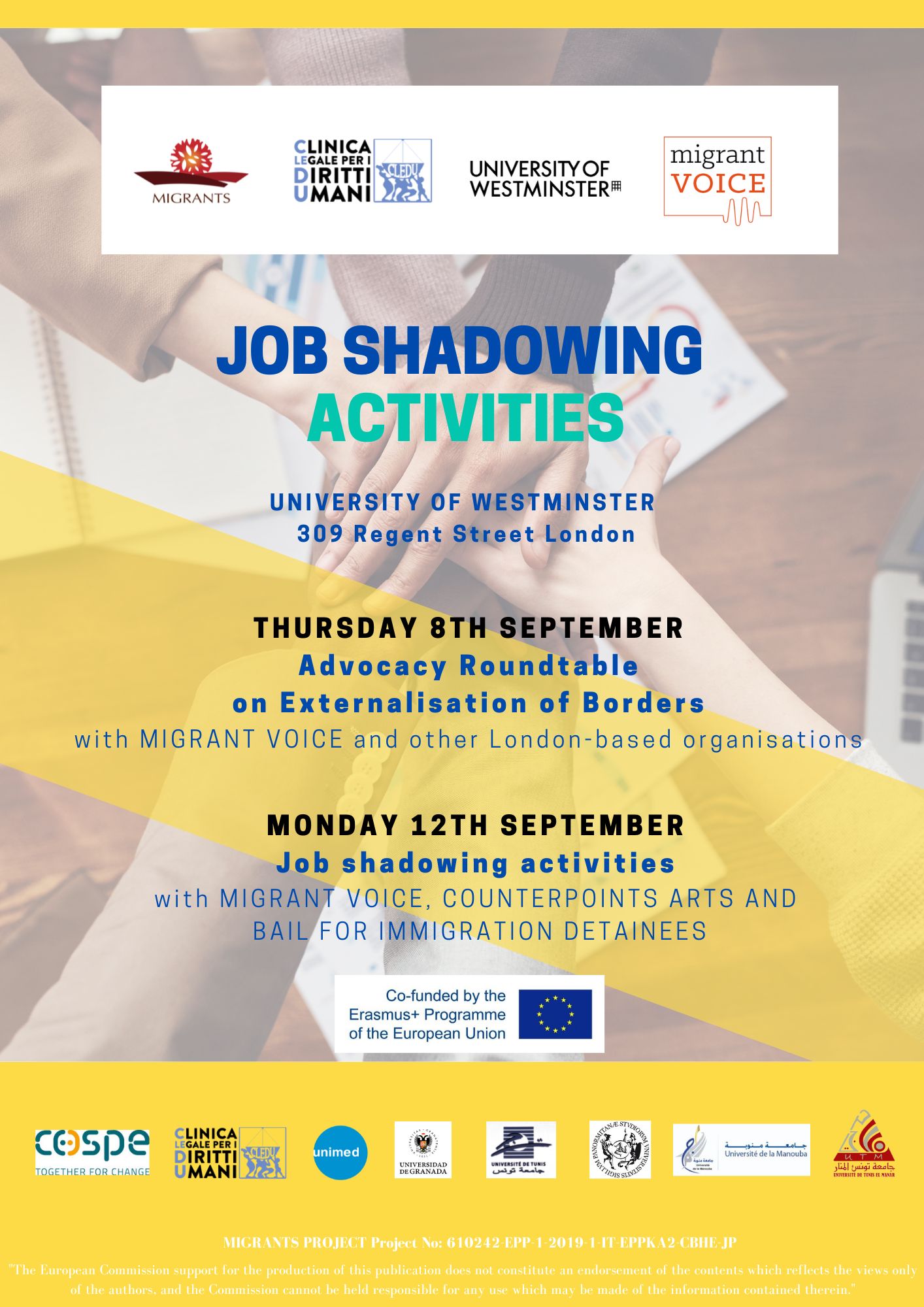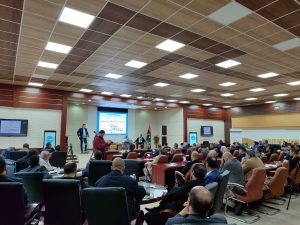
Job shadowing is an activity of on-the-job training, implemented with international agencies, organizations, institutions, NGOs, and other stakeholders whose know-how in migration issues is relevant for the participants.
In the framework of the MIGRANTS project, a job shadowing activity took place in London on Monday, September 12th, involving a number of academics from Italy, Spain, UK and Tunisia.
The MIGRANTS project intends to overturn the common narrative on migration with the aim of addressing the phenomenon outside the logic of emergency, improving cooperation on international migration. The cornerstone of the project is the Master in Migration Studies, open to 25 students from Tunisia, the Middle East, North and Sub-Saharan Africa and Europe. Through the Master and other training and research activities, the project intends to strengthen the institutional capacity of the Tunisian higher education system, which is essential for developing the role of the country and for guaranteeing a multidimensional approach to the migratory phenomenon in the Mediterranean.
The activity in London was organised by Cledu, in cooperation with the University of Westminster and London-based organisations. The activity will be divided in two moments: the Advocacy Roundtable on 8 September and the Job Shadowing on 12 September with 3 organisations: Migrant Voice, Counterpoints Arts and Bail for Immigrants Detainee.

The Advocacy Roundtable focused on issues around borders and engage UK and international perspectives in learning and discussion. Many organisations will take part to the roundtable: Amnesty International UK, Right to Remain, United against Inhumanity (UAI), International Centre for Eritrean Refugees and Asylum Seekers (ICERAS), Global Strategic Communications Network, Regularise, The Migration Observatory, Migrants Organise, Praxis.
As a global trend, borders are no longer at the edge of a state, but externalised to other countries as well as embedded inside society among ordinary citizens and through greater digitisation of border controls. Borders are now fluid, but they are around and among us. In the UK, immigration controls have been increasingly outsourced to ordinary citizens – turning them into unwilling border agents. Landlords, doctors, teachers, employers and others are required to perform checks on their patients, students, service users, and report their status to the Home Office. At the same time, the UK’s new Rwanda plan signals a shift further from externalisation of border controls to outsourcing responsibilities altogether. Meanwhile across Europe, the externalisation of borders and the increasing criminalisation of migration and those rescuing or showing solidarity to migrants demeans the notion of European values and institutions we claim to uphold.
On monday 12 September, professors and PHD students from the Universities of La Manouba, El Manar and Tunis together with Cledu and University of Westiminster and Palermo animated the job shadowing activity to better know the actions of the London-based organisations and they discussed detailed case studies on advocacy, campaigning, lobbying and communications tools to raise awareness.






